StanfordKPD
A kidney exchange platform for kidney paired donation


StanfordKPD is a platform for kidney paired donation (KPD). It allows hospitals to store patient and donor information and find matches using an intelligent matching algorithm. It was developed at Stanford University. It is available to hospitals free of charge. The platform has facilitated over 600 kidney transplants in the United States and Israel.
Kidney failure is a leading cause of death around the world. No country is currently able to supply all the transplants required by its patient population. More than one-third of potential kidney donors who want to donate their kidney to a friend or family member cannot donate due to blood type or antibody incompatibility. Kidney paired donation (KPD) overcomes donor-recipient incompatibility by swapping kidneys between multiple pairs. KPD is also being used to find better matches for compatible pairs who want a longer lasting transplant.
The platform lets users store patient and donor information in a comprehensive and secure way. Users can search for patients or donors using any combination of attributes, such as blood type, HLA, cPRA, and so on.
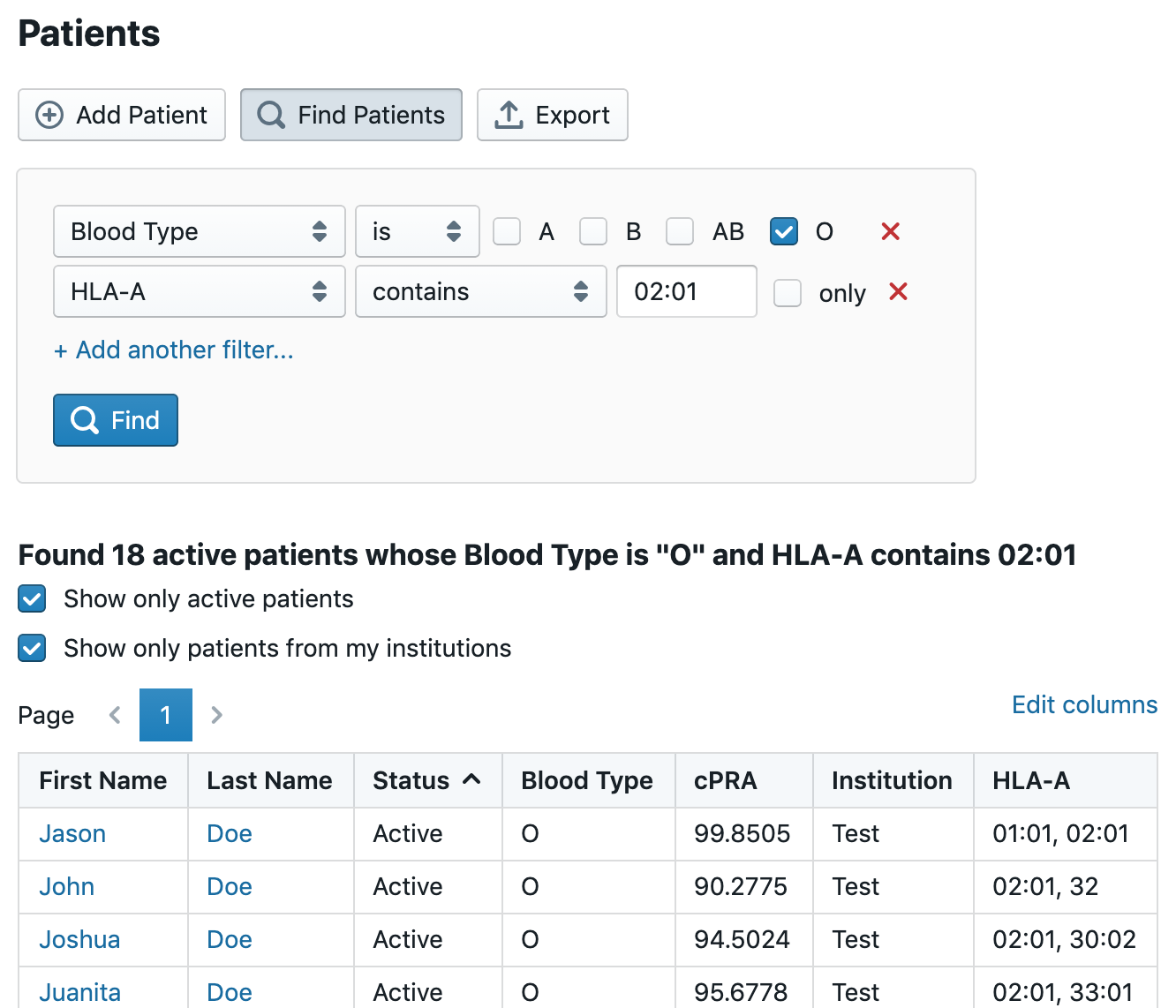
The platform lets users find optimal exchanges and chains of recipients and donors through a sophisticated matching algorithm. It can be set to prioritize patients in urgent need of a transplant. It supports any length of cycles and chains. Users can adjust the MFI cutoff for any antigen.
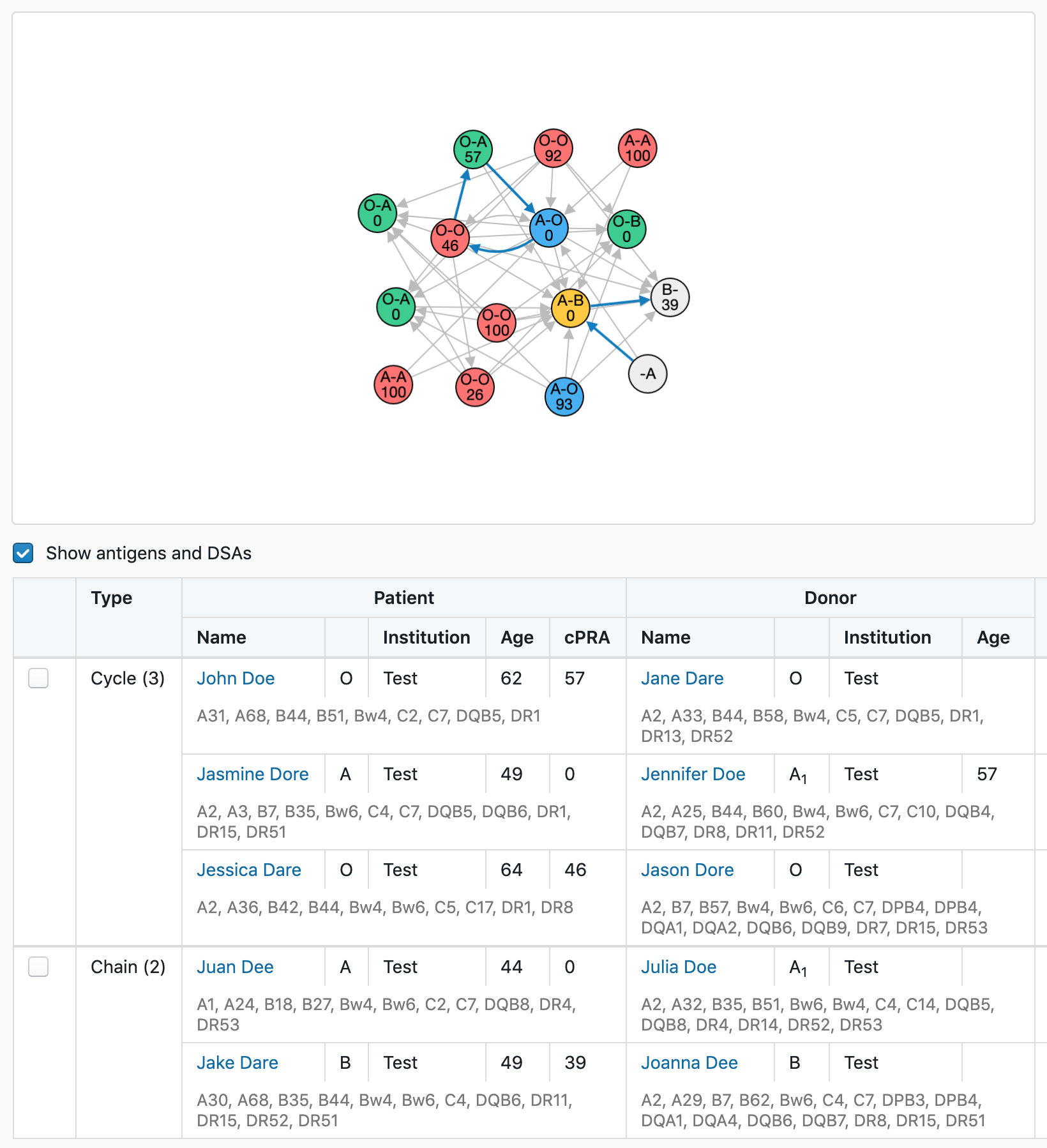
High-resolution typing of HLAs is supported. Blood group sub-types A1 and A2 are also supported. These enable more accurate matches and increase the pool of compatible donors. The data can be imported from HistoTrac.
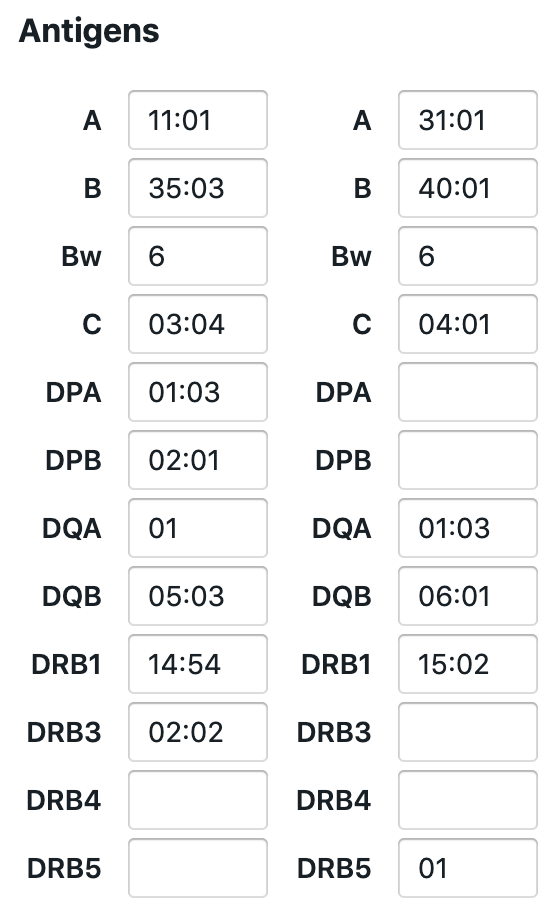
The platform lets hospitals optionally share their de-identified patient/donor information with other hospitals and kidney exchange platforms to find more potential matches.

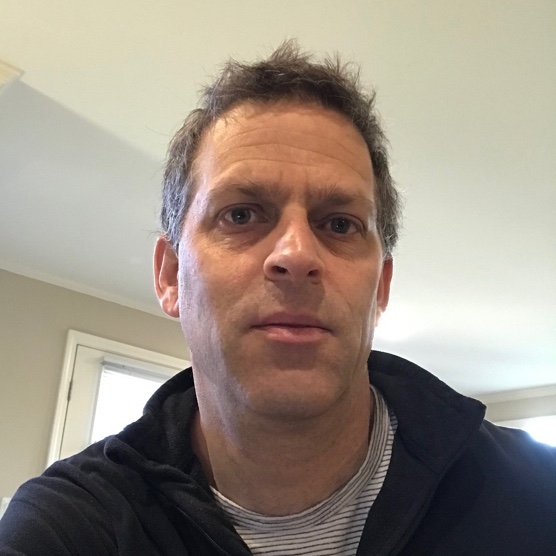
Associate Professor of Management Science and Engineering, Stanford University.

Professor of Economics, Stanford University. Awarded the 2012 Nobel Prize in Economics.
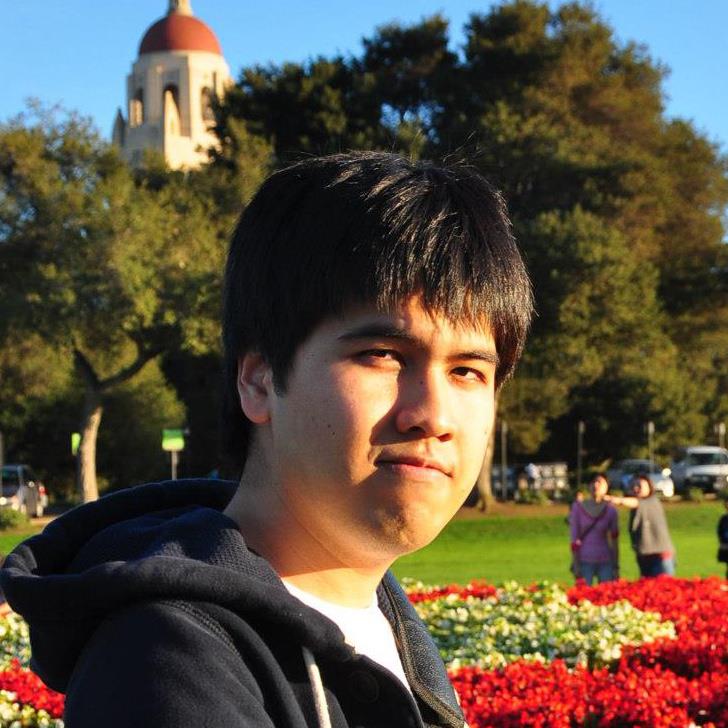
PhD student in Management Science and Engineering, Stanford University.
We would like to thank John Silberholz (Assistant Professor of Technology and Operations, University of Michigan) and Ross Anderson (Google) for their contributions to the platform and Cathi Murphey Half (Southwest Immunodiagnostics, Inc) for her critical input and feedback.
The platform is being actively developed by Prof. Itai Ashlagi’s group at Stanford University. If you are interested, please contact us at stanford-kpd@lists.stanford.edu. The platform is available to hospitals free of charge.